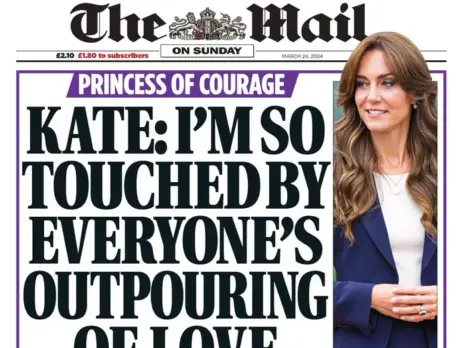Mike Molloy began his journalism career as a messenger boy on the Sunday Pictorial at the age of 15 and went on to edit the Daily Mirror for ten years from 1975 to 1985, being promoted to editor-in-chief after Robert Maxwell bought the title in 1984.
In these exracts from his memoirs, The Happy Hack, he talks about how bingo helped The Sun overtake The Mirror and how Peter Cook sabotaged a planned spoof edition of Private Eye by appearing at the Mirror offices with a case of whisky. The Happy Hack is published by John Blake priced £8.99.
The American journalist H L Mencken once said, ‘No one ever went broke underestimating the intelligence of the public’ – a claim often levelled at those who produce popular newspapers. In the early sixties Cecil King said it would be impossible for a newspaper to come under the Daily Mirror.
Within ten years Rupert Murdoch was to prove him wrong.
The fatal flaw with the pre-Maxwell Mirror was that we thought we had a mission to improve the country. That was fine when we had the market to ourselves, but when Murdoch came along he had a mission to produce profits. If the readers wanted topless girls, who was he to keep them out of the paper?
From a journalist’s point of view there was nothing more mindnumbingly boring than newspaper bingo. But a vast proportion of the readers loved it. When you’re trying to keep your family’s head above water, the headline "free! your chance to win a million pounds" is a potent slogan.
The bingo boom came about because of new technology.
Someone developed an inexpensive way to print changing numbers on a bingo card without having to stop the presses. So the pop papers could distribute vast numbers of cards and print the winning numbers in the paper.
The first person to put bingo into a daily newspaper was Derek Jameson when he edited the Daily Star, and for some reason he was inordinately proud of the fact, but the effect on the circulation was startlingly effective.
Larry Lamb was still editor of the Sun, and the Mirror had just overtaken it once again. Murdoch took one look at the situation, fired Larry, made Kelvin MacKenzie editor, cut the cover price of the Sun and introduced bingo. In six months the Sun had put on 600,000 in circulation.
The Mirror management responded by increasing our cover price to make us even more expensive than the Sun. Finally, after a long delay, we introduced bingo, but the Sun had stolen a march on us.
Murdoch was reputed to have said to his new editor, "How do you feel about that, Kelvin? Six hundred thousand on the circulation and it had fuck all to do with you."
Kelvin MacKenzie's street smart character is a smoke screen
Actually, MacKenzie turned out to be a formidable editor and the right choice for the times. The character he cultivates of being a street-smart operator from a tough comprehensive is a smoke screen. He was educated at Alleyn’s, a famous independent school, and there is a shrewd mind behind the Del Boy, right-wing persona he adopts on television.
Kelvin was one of the new breed of pop-paper journalists who emerged in the seventies. He considered the Sun an entertainment and the Mirror’s political lectures hopelessly outdated. In some ways, he had a point.
I had edited the Mirror for nearly ten years and the readers I’d originally connected with were changing. Until the late sixties there was still a vast part of the population that considered itself working class, but this pool of readers had begun to shrink like the air leaking from an old Christmas balloon.
The sudden death of kiss and tells
A development that intrigued me was the sudden death of kiss-and-tell memoirs. As the permissive aged continued, revelations in newspapers that would have been considered pornographic by the men who taught me the business became commonplace.
Large sums of money were paid to dubious groupies when they revealed all about the ‘love rats’ they’d cavorted with. Rock stars, politicians and footballers were the favourite targets.
Practically everyone (apart from the participants) is fascinated by a sex scandal. The ashes of the Christine Keeler and John Profumo story are still raked over today and few will have forgotten Margaret Thatcher’s favourite, Cecil Parkinson, getting his research assistant pregnant and then being called to heel by his wife.
But, as the old song ‘Does Your Chewing Gum Lose its Flavour (On the Bedpost Overnight)?’ described it so neatly, the endless exposures of who bonked whom grew suddenly tiresome.
One day Vicki Hodge rang me to say she’d just had a fling with Prince Andrew while he was in the West Indies on leave from the navy. Her intimate account of their romance could be mine to publish for a not unreasonable sum. Vicki Hodge had been one of Felicity Green’s favourite models in the sixties; she was the daughter of a baronet, and, although married, had conducted a public affair with John Binden, a bit-part actor and a violent gangster.
John Binden had been photographed with Princess Margaret on Mustique, the island where she had a holiday home. Later, in a knife fight to the death with another gangster, Binden had triumphed over his opponent, although grievously wounded in the encounter.
Sometimes the Queen must have sighed when she heard of the company her family were keeping. With such notorious names involved, I thought the series would have some impact on the circulation, but it wasn’t to be. There are always an impressive number of people who swing between newspapers, but they just weren’t interested this time; five years earlier, it would have been a sellout.
Eventually, I returned from a September holiday to go straight to the political conferences in Blackpool, and, on my arrival, Maxwell took me into a private room and said Bob Edwards was leaving and he wanted me to be editor-in-chief with Richard Stott as editor of the Daily Mirror. I don’t think I had felt such an overwhelming sense of relief since I was told at the age of eleven that my badly damaged left leg was not going to be amputated after all.
Editing for Maxwell was almost unendurable
In the last months I’d found editing for Maxwell almost unendurable. He’d never harangued or bullied me, as I’d seen him do so often to others, but he was so infuriatingly crass and quixotic in his ways that for the first time in my life I began to find the job hard to take. Previously, I’d worked for men who
understood newspapers. If I’d got things wrong, they would point out my shortcomings in no uncertain terms; and, if I’d got
things right, they were generous in their praise.
Maxwell had no idea whether an edition of a paper was good or bad because he had no ability to judge how well the work had been done. Whatever the quality, it just looked like another newspaper to him.
This meant there were no postmortems on poorly executed editions, but also there were no special days when the boss opened the champagne to celebrate a winner.
How Peter Cook and a case of whisky derailed The Real Private Eye
Robert Maxwell always reserved his deepest hatred for Private Eye. Its constant lampooning drove him to incoherent rages. He launched several lawsuits against the publication and finally decided that he was going to attack it in print. So he asked me to produce a one-off publication in order to ‘give them some of their own medicine’.
Like all the journalists of my generation, I liked Private Eye. It had given me a kicking from time to time, but nothing malicious. Bron Waugh had poked at me a bit, but in his younger years he’d worked for the Sunday Mirror and written quite a lot of longish captions for its glamour-girl pictures. The drooling prose and appalling puns were not among his best work, so I simply wrote to warn him that, if he continued to bully me in the Eye, I would reprint all the captions with his name prominently displayed.
He sent me a funny, grovelling apology by return of mail.
The first thing I did was deliver a secret message to the Eye’s editor Richard Ingrams, saying that all we were going to produce was vulgar abuse, no nasty stuff. I then seconded John Penrose to be my deputy.
We knocked up some Soviet-style insults, copied the look of the Eye and called the publication Not Private Eye.
When he saw the proofs, Maxwell was delighted with our schoolboy efforts. He’d taken a huge shine to Penrose, whom he kept referring to as ‘Johnny’. I was going on a brief holiday, so I left Penrose in my office with only the final proofs to dispatch to the printer.
When I returned I found chaos. It transpired that Peter Cook, accompanied by other Private Eye workers, had appeared at the Mirror front office with a case of whisky saying they had come to acknowledge a Mirror victory.
Penrose had invited them up to my office and partaken too liberally of the drink they provided. With Penrose comatose on the sofa, Peter Cook had found Maxwell’s private telephone number on my blotter and rang to say he was calling from the editor-in-chief’s office, and then set about roundly insulting him.
Maxwell’s rage was of epic proportions. He didn’t want to believe that his new favourite, Penrose, could be responsible, so he blamed the security man at the door. The head of security defended his man and explained that Penrose had given instructions to let Cook and company into the building.
‘Johnny betrayed me,’ Maxwell lamented. ‘He flung opened the gates of the moat and they swam the fortress. He must be fired.’ And he was.
Email pged@pressgazette.co.uk to point out mistakes, provide story tips or send in a letter for publication on our "Letters Page" blog







